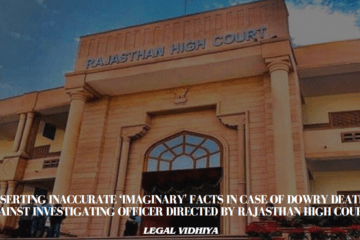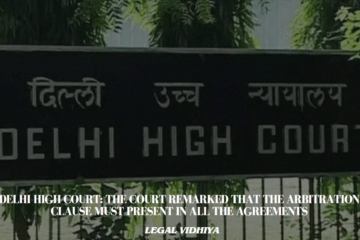
The principles governing the grant of bail encompass various factors, including the gravity of the accusation, severity of the offense, and the accused’s potential influence on witnesses. Additionally, considerations such as the likelihood of absconding, tampering with evidence, and obstructing justice are crucial. The court’s satisfaction with the prima facie evidence and the possibility of the offense being repeated are also significant determinants.
Recently, the Supreme Court emphasized that the non-appearance of the accused can warrant bail cancellation. In a case where bail was revoked by the Calcutta High Court due to the accused’s absence despite repeated directives to appear, the Supreme Court scrutinized the matter. The accused’s counsel attributed the absence to a traffic jam caused by VIP movements. However, the Supreme Court clarified that bail could only be revoked if the conditions are breached or liberty is misused, such as influencing witnesses or tampering with evidence. Merely non-appearance, without evidence of such violations, cannot suffice for bail cancellation. This underscores the distinction between the criteria for granting and revoking bail.
The Court noted that the judgment under review lacked the specified reasons for bail cancellation, leading to its overturning. In the case of Daulat Ram and others Vs. State of Haryana (1995 (1) SCC 349), the Supreme Court emphasized the necessity of substantial circumstances for bail cancellation, cautioning against a mechanical approach to such decisions.
In light of this observation, the apex court outlined various factors that could Result in bail cancellation, providing illustrative examples rather than an exhaustive list:
- Interference or attempts to interfere with the due process of justice.
- Evasion or attempts to evade court proceedings.
- Misuse of the privileges granted to the accused while on bail, such as failing to adhere to agreed terms.
- Possibility of the accused absconding or fleeing to another jurisdiction.
- Likelihood of actual misuse of bail.
- Potential for the accused to tamper with evidence, obstruct investigations, or intimidate witnesses.
- Other significant circumstances rendering bail no longer conducive to a fair trial or allowing the accused to retain freedom while on bail.
These factors underscore the complexity and gravity of bail cancellation decisions, emphasizing the need for thorough consideration and evidence-based reasoning. In sum, the grant and cancellation of bail are guided by a nuanced assessment of legal principles and factual considerations. While the courts uphold the presumption of innocence, they also prioritize the integrity of legal proceedings and the protection of societal interests. Balancing these imperatives ensures that bail decisions reflect the principles of justice and fairness, safeguarding both individual liberties and the integrity of the legal system.
CASE. NAME – KRISHNA SHARMA ALIAS KRISHNA KUMAR SHARMA (S) VERSUS THE STATE OF WEST BENGAL & ANR
NAME – VEDIKA GUPTA, B.A.LL.B, LLOYD LAW COLLEGE, INTERN UNDER LEGAL VIDHIYA
Disclaimer: The materials provided herein are intended solely for informational purposes. Accessing or using the site or the materials does not establish an attorney-client relationship. The information presented on this site is not to be construed as legal or professional advice, and it should not be relied upon for such purposes or used as a substitute for advice from a licensed attorney in your state. Additionally, the viewpoint presented by the author is of a personal nature.




0 Comments